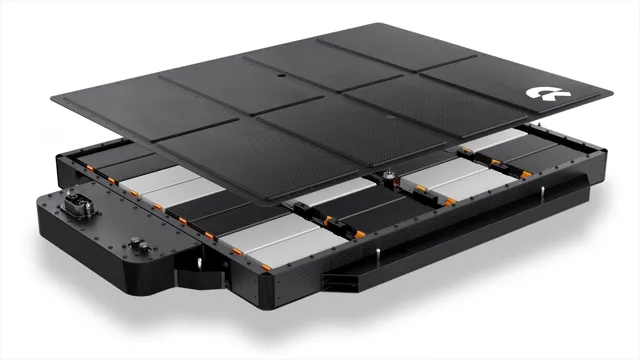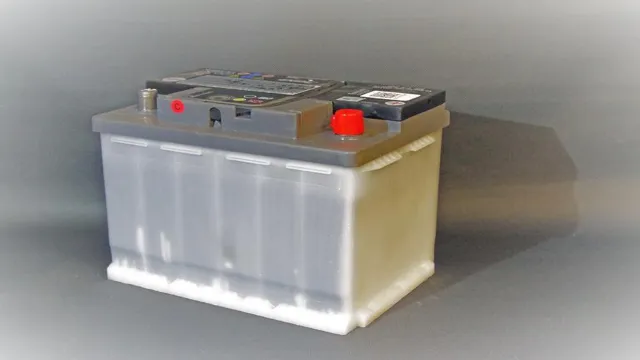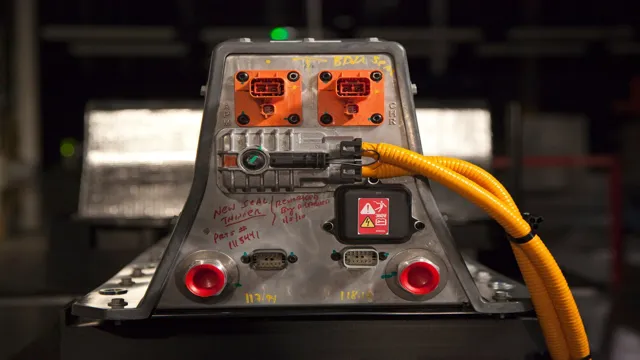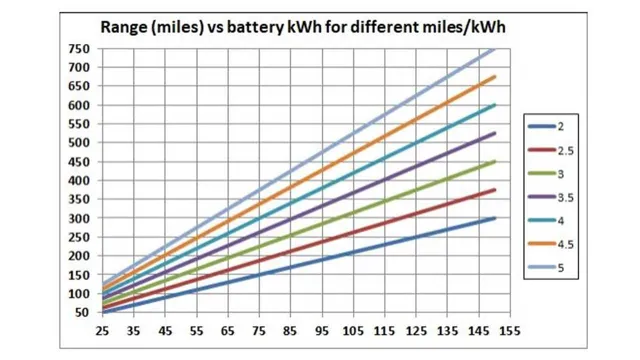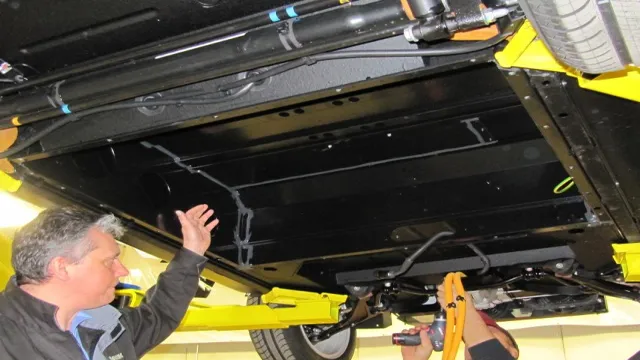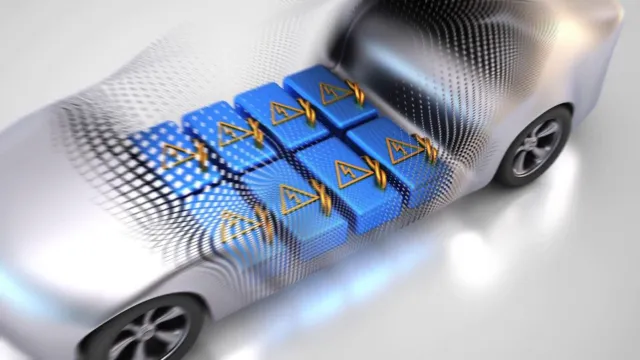Powering the Future: How China’s Electric Car Batteries Are Leading the Charge
Electric cars have gained immense fame over the years as a sustainable alternative to fuel-powered automobiles. However, the truth behind the production of electric car batteries is often elusive. Made in China: The Truth about Electric Car Batteries reveals more about the facts behind electric car battery production.
Producing electric car batteries is an energy-intensive process. China has evolved into the largest producer of electric car batteries, thanks to its low labor costs and easy access to raw materials. The process begins with the extraction of materials such as cobalt, lithium, and nickel, present in the earth’s crust.
After being refined and processed, the materials are used to manufacture batteries. However, the reality is that the process is incredibly destructive to the environment. The extraction of raw materials creates enormous amounts of waste and pollution, leading to soil degradation, water contamination, and carbon emissions.
The process also requires a vast amount of energy, with most of it coming from burning fossil fuels. Moreover, the batteries are not entirely eco-friendly, despite being used in electric vehicles. The batteries used in electric cars contribute significantly to global warming when they are not recycled properly.
The process of recycling requires a lot of energy and can lead to emissions of carbon and other harmful substances. In conclusion, while electric car batteries may be an excellent alternative to fossil fuels, their production process detracts from their eco-friendliness. The more people become informed about the effects of producing electric batteries, the more they can make informed decisions to ensure you are contributing to sustainability in the transportation industry.
The Rise of Chinese Manufacturing
When it comes to the production of electric car batteries, the world is seeing a massive shift towards Chinese manufacturing. For decades, China has been known as a hub for cheap electronics, but now the country’s factories are producing high-quality batteries at a fraction of the cost of other producers. With the increased demand for electric vehicles, especially in Europe and China, Chinese manufacturers have been doubling down on battery production in recent years and are now responsible for producing around 80% of the world’s lithium-ion batteries – the most commonly used battery in electric vehicles.
This shift towards Chinese manufacturing has transformed the global auto industry, making it more competitive and accessible for consumers, but it has also raised concerns about the environmental impact of the massive amounts of batteries being produced. Nonetheless, it’s clear that electric car batteries made in China are here to stay, and they are rapidly improving in quality and affordability.
The Numbers: China’s Dominance in Battery Production
China has become a dominant force in battery production over the years, and this rise has been impressive. The numbers speak for themselves as China is responsible for producing over 70% of the world’s lithium-ion batteries. This is a consequence of China’s strong battery manufacturing industry, which has continued to grow with time.
The country boasts of a highly skilled workforce, advanced technology, and favorable government policies that have supported the development of this crucial industry. Consequently, China has become the world leader in electric vehicle production as most electric cars use lithium-ion batteries. As the world transitions to electric cars and renewable energy, China’s dominance in the battery manufacturing industry puts it in a unique position as it controls a significant part of the supply chain.
This situation enables the country to influence the global market’s pricing, production, and distribution of electric vehicle batteries. As such, it is essential for other countries and industries to develop their own battery manufacturing capabilities to reduce dependence on China’s dominant position.
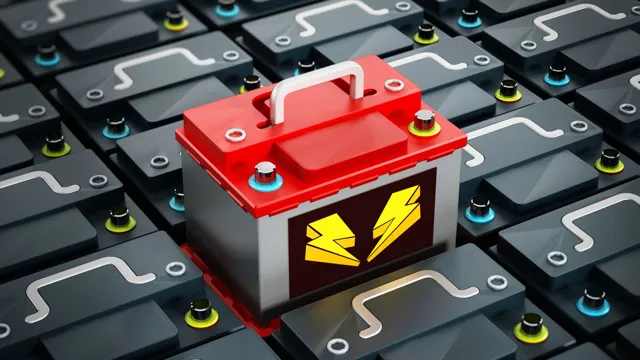
China’s Investment in Renewable Energy
China’s incredible economic growth has been fueled in part by its investment in renewable energy. With over $758 billion spent on renewable energy projects, China has become a global leader in clean energy manufacturing. This investment has resulted in a surge in Chinese manufacturing capacity, as the country now produces more solar panels and wind turbines than any other nation.
China’s investment has also led to a dramatic decline in the costs of renewable energy technologies. Solar power has experienced a 90% drop in costs over the past decade, while wind power has seen a 70% reduction. The integration of renewable energy into the Chinese economy has not only provided new employment opportunities but has also drastically reduced the country’s reliance on fossil fuels.
While there are still challenges ahead, such as confronting air pollution and ensuring the sustainability of renewable energy growth, China’s investment in green technologies has already transformed the country’s energy landscape and paved the way for a more sustainable future.
Electric Car Batteries: Made in China’s Factories
Electric car batteries made in China are becoming increasingly common in the global market. China, the world’s largest producer of electric car batteries, has several factories that produce high-quality lithium-ion batteries for cars. These batteries not only have a longer lifespan but also offer faster charging times and higher energy densities than traditional lead-acid batteries.
Though doubts about the safety and quality of Chinese-made batteries still linger in many people’s minds, the Chinese government has taken significant steps to improve the manufacturing standards and safety of these batteries. As such, Chinese-made electric car batteries are not only cost-effective but also reliable options for those who want to purchase an electric vehicle that comes with quality batteries.
The Technology of Chinese-made Batteries
Chinese-made batteries have been gaining popularity in the electric car industry. These batteries are not only cost-effective but are also made with cutting-edge technology. These batteries are produced using a cobalt-free cathode, which helps reduce the environmental impact and makes them safer to use.
The batteries’ energy density is higher, which improves the range of electric vehicles, making them travel longer distances without charging. Furthermore, these batteries’ lifespan is suitable for car owners as they are designed to last a long time, which cuts down on the need to replace them frequently. All in all, Chinese-made batteries are a game-changer for the electric car industry, and they are providing a cost-effective and high-quality solution that the market has been demanding.
The Cost of Chinese-made Batteries
Electric Car Batteries Electric car batteries made in China’s factories are becoming the new norm for automakers due to their lower prices, but at what cost? The issue with Chinese-made batteries lies mainly in their environmental impact. China’s manufacturing industry is notorious for its lack of environmental regulations, leading to pollution and hazardous waste. However, some Chinese battery manufacturers have implemented measures to reduce their impact, such as recycling programs for used batteries and using renewable energy sources for production.
On the other hand, Chinese-made batteries are often made with lower-quality materials, resulting in shorter lifespans and potentially lower performance compared to batteries made elsewhere. As the electric vehicle market grows, automakers will need to weigh the pros and cons of Chinese-made batteries and make decisions based not only on cost but also on environmental and performance considerations.
Quality Control: Separating Fact from Fiction
When it comes to the quality control of electric car batteries, there are plenty of myths and misconceptions to go around. One of the most prevalent is the idea that all electric car batteries are made in China’s factories and are therefore inherently inferior. While it’s true that many companies source their batteries from Chinese manufacturers, this doesn’t necessarily mean that the batteries themselves are of poor quality.
In fact, many Chinese factories have invested heavily in advanced manufacturing technologies and employ highly skilled workers who are able to produce top-of-the-line batteries with great precision and accuracy. Of course, there are always risks associated with outsourcing production to foreign factories, but these can be mitigated through careful quality control measures and close collaboration between manufacturers and their suppliers. Ultimately, the key to ensuring high-quality electric car batteries is to do your research, choose reputable suppliers, and prioritize rigorous testing and inspection throughout the manufacturing process.
The Future of Electric Car Batteries
When it comes to electric car batteries, China is definitely leading the way. Chinese companies such as CATL and BYD are working hard to develop the next generation of batteries that will power the electric cars of the future. Their focus is on improving the performance, durability, and cost-effectiveness of electric car batteries.
This is all part of China’s plan to become the world leader in electric vehicles and to reduce its dependence on imported oil. With new breakthroughs in battery technology, electric vehicles are becoming more affordable and practical for everyday use. And with companies like CATL and BYD pushing the limits of what’s possible, we can expect to see even more exciting developments in electric car batteries in the years to come.
So, it’s safe to say that electric car batteries made in China are leading the way towards a more sustainable and environmentally-friendly future.
Factors Impacting the Industry
Electric Car Batteries Electric cars have been gaining popularity in recent years, and their success largely depends on the performance of their batteries. The future of electric car batteries is looking promising due to the significant advancements in technology. Experts predict that the next generation of electric car batteries will have more energy density, which will allow for longer driving ranges.
Companies are also focusing on creating lighter and smaller batteries that can hold more energy, which will be more efficient and easier to manufacture. Additionally, the development of solid-state batteries is expected to revolutionize the industry by providing faster charging times and increasing battery life. The future of electric car batteries may even include the use of recycled materials to reduce environmental impact and lower costs.
All in all, with the growth of electric car sales, the future of electric car batteries looks very promising and exciting.
Forecasts for the Years Ahead
As technology advances, the future of electric car batteries looks promising. With the increasing demand for electric vehicles, manufacturers are developing ways to improve the performance and longevity of their batteries. One solution is solid-state batteries, which offer higher energy density and longer battery life compared to traditional lithium-ion batteries.
Moreover, they are safer and more environmentally friendly because they eliminate the need for flammable liquid electrolytes. Another development in battery technology is wireless charging, where electric vehicles can charge while parked or driving on specially equipped roads. This innovation will make electric cars more accessible and convenient for drivers.
It’s exciting to see how these technological advancements will shape the way we drive and contribute to a more sustainable future.
Final Thoughts: Is Chinese-made Right for You?
When it comes to electric car batteries made in China, there are both advantages and drawbacks that you should consider before making a purchase. On the one hand, Chinese-made batteries are often cheaper than their counterparts from other countries, which could save you a significant amount of money upfront. However, if you’re concerned about the quality and safety of your battery, you may want to think twice before opting for a Chinese-made option.
While some manufacturers have invested heavily in quality control measures, there have been reports in the past of Chinese batteries being more prone to overheating and catching fire. Ultimately, the decision of whether or not to choose a Chinese-made electric car battery will come down to your individual needs and priorities. If budget is your top concern and you’re willing to take on a small amount of risk, then a Chinese-made battery could be the right choice for you.
However, if safety and reliability are your top priorities, it may be worth investing in a higher-quality battery from another country.
Conclusion
In conclusion, the rise of electric car batteries made in China is undeniable. These batteries offer high-quality performance at a lower cost than their competitors. And while some may be skeptical of products made in China, it’s important to remember that innovation and progress know no borders.
So, buckle up and get ready for a bright future of electrified transportation, powered by the batteries made in the land of the Great Wall.”
FAQs
What are the top Chinese brands producing electric car batteries?
Some of the top Chinese brands producing electric car batteries include CATL, BYD, and BAIC.
How do Chinese electric car batteries compare to those made in other countries?
Chinese electric car batteries are generally known for being more affordable, but may not have the same quality and longevity as batteries made in other countries.
Are there any concerns about the safety of Chinese-made electric car batteries?
While there have been some concerns about the safety of Chinese-made electric car batteries in the past, many of the top Chinese brands have undergone rigorous testing and adhere to strict safety standards.
What advancements have been made in Chinese electric car battery technology?
Chinese companies have been investing heavily in battery technology research and development, with a focus on increasing energy density and extending the lifespan of their batteries. Some companies are also exploring the use of alternative materials, such as solid-state batteries.
